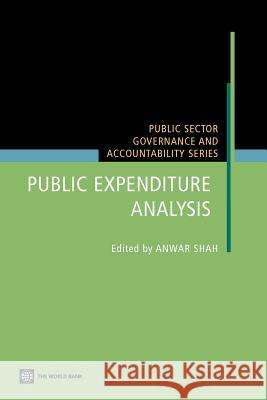Public Expenditure Analysis » książka
Public Expenditure Analysis
ISBN-13: 9780821361443 / Angielski / Miękka / 2005 / 256 str.
For various reasons--whether philosophical, political, humanitarian, or by institutional mandate--people are concerned for the well being of the most vulnerable groups in society: women, the poor, and the elderly. Some would even measure the value of a political system by how well it cares for the least of its members. Related to this is the orientation of government toward the public more generally and the extent that it listens and responds to its citizens. More specifically, it is the rules and norms--the institutional framework--of government through which it takes into account the preferences of people on a day-to-day basis, not just at the ballot box. 'Public Expenditure Analysis' explores two themes: the orientation of government towards its more vulnerable groups and the extent to which government is responsive to its citizens. The first part of the book provides tools, methodologies, and examples of how to examine the impact of government expenditures, taxes, pension systems and other policies on women, the poor, and the elderly. The second part looks at the different ways that the government listens to citizens' voices and proposes a new institutional framework for governments that wish to implement reforms that increase responsiveness: citizen-centered government and citizen-centered budgeting.











